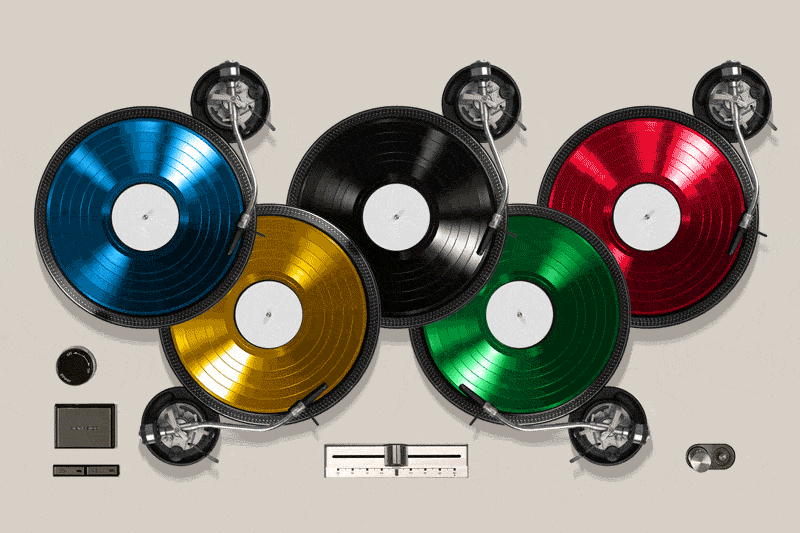Fads Change, but the Beat Goes On
- Share via
SAN DIEGO — England has long been known as the Land of the Musical Fads, and in the late 1970s, on the heels of punk-rock, came the “two-tone” ska revival.
The music, essentially a modernized version of ska, the upbeat Jamaican precursor to reggae, was characterized by catchy melodies, perky rhythms and politically incisive lyrics. The movement was spearheaded by a pair of interracial bands from a pair of bleak, industrial cities: the Specials, from Coventry, and the English Beat, from nearby Birmingham.
By 1981, the fad had fizzled. And now, nearly a decade later, certain members of both groups--including ex-Specials drummer John Bradbury and former English Beat singer Ranking Roger--have joined forces as the Special Beat.
They’re gearing up for a second run, starting with a two-month U.S. tour that began Nov. 2 in Jacksonville, Fla., and includes a stop tonight at the Starlight Bowl in Balboa Park, where they’ll open for Gene Loves Jezebel.
The catalyst was Ranking Roger’s solo performance last April at an international ska festival in San Francisco, Bradbury said.
“He came back (to England) all excited, telling me there was still plenty of interest in ska, particularly on the West Coast,” Bradbury said. “So I thought, well, let’s phone around and see if any of the guys would be interested in putting together an outfit, and, as soon as Roger and I got on the phone, we found plenty of people saying yes, yes, yes to everything.”
They recruited former Specials singer Neville Staples and bassist Horace Panter, who had also played in Roger’s post-English Beat group, General Public.
Rounding out the new group’s lineup are guitarist Bobby Bird, keyboard player Sean Flowerdew and singer Finny, the latter two from the Loafers, a new English ska band Bradbury had been producing.
“When you consider when we did it 10 years ago, a complete generation never had the opportunity to see us back then, so we have the potential for a whole new audience,” Bradbury said. “In addition, we don’t consider this type of music to be old hat. It’s not as if the Specials or the English Beat particularly took America by storm.”
Indeed. The late 1970s “two-tone” ska revival was exclusively a British phenomenon, having originated when white street punks began mingling and swapping musical influences with black immigrants from the West Indies. The result was an infectious hybrid of authentic ska, reggae, rock ‘n’ roll and rhythm-and-blues, with lyrics that lambasted racial intolerance and political oppression.
“In Coventry and Birmingham, there are a lot of black immigrants, very much like Detroit,” Bradbury said. “There was a like-mindedness of individuals for West Indian music, and the sound developed along those lines, through various influences made upon it through the bands.
“The one thing all of us sort of purported to do was demonstrate the multiracial nature of our music, as well as our bands, by performing on stage in black and white, and having black and white logos, that sort of thing. And that’s how it came about that the media symbolized us as ‘two-tone.’ ”
The ska fad didn’t last long; it was a big sensation in England for about two years. Both the Specials and the English Beat scored numerous Top 10 hits on the English pop charts, and their live appearances routinely sold out.
In the United States, however, it was a different story. Despite some powerful allies--Elvis Costello produced the Specials’ debut U.S. album; the Pretenders and the Talking Heads took the English Beat on the road--neither band achieved more than a cult following.
“The U.S. pop charts have never been as open as the English charts, and my opinion is that they didn’t really know where to play us on the airwaves,” Bradbury said. “We were a white band playing a ska- and reggae-influenced sound, so it was difficult for rock stations on one end of the FM to play us, and on the other end, black stations couldn’t get the idea, either.
“And, in America, if you don’t get on radio, you don’t make it.”
The Specials broke up in 1982 due to “inter-band stress,” Bradbury said. The English Beat broke up a year later, when Roger and fellow singer Dave Wakeling split to form General Public. Bradbury subsequently put together a 15-piece soul revue, the J. B. All-Stars, with whom he toured and recorded for two years before venturing into producing other acts, including the Loafers.
And, although he’s looking forward to ska-ing again, Bradbury said, he concedes he has no idea how long the Special Beat will last.
“Our plans for the future? They’re up in the air,” he said. “I mean, this whole project is only about eight weeks old. Once we’ve tested the water with this tour and see how we get along together, the next step forward should be recording.
“But in this business, nothing’s a certainty until it’s been done.”
More to Read
The biggest entertainment stories
Get our big stories about Hollywood, film, television, music, arts, culture and more right in your inbox as soon as they publish.
You may occasionally receive promotional content from the Los Angeles Times.








